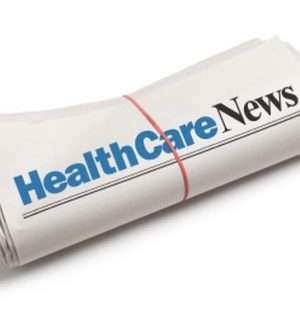- Recognizing the Signs of Hypothyroidism
- 10 Strategies to Overcome Insomnia
- Could Artificial Sweeteners Be Aging the Brain Faster?
- Techniques for Soothing Your Nervous System
- Does the Water in Your House Smell Funny? Here’s Why
- Can a Daily Dose of Apple Cider Vinegar Actually Aid Weight Loss?
- 6 Health Beverages That Can Actually Spike Your Blood Sugar
- Treatment Options for Social Anxiety Disorder
- Understanding the Connection Between Anxiety and Depression
- How Daily Prunes Can Influence Cholesterol and Inflammation
Health Highlights: March 8, 2021

AstraZeneca to Seek FDA Approval of COVID Vaccine Within Weeks
AstraZeneca says it will file for emergency use authorization of its COVID-19 vaccine in the United States after it gets the results of a clinical trial within the next few weeks.
If the two-dose vaccine is approved by the Food and Drug administration, it would be the fourth COVID-19 vaccine available in the U.S.
Upon FDA approval, AstraZeneca plans “to deliver roughly 50 million doses instantly to Americans,” Ruud Dobber, the company’s executive vice president, told CBS News on Friday.
The AstraZeneca vaccine is already being used internationally, after being approved by the European Union, the U.K. and the World Health Organization.
The three currently approved vaccines in the U.S. are from Moderna and Pfizer — both require two doses — and a one dose vaccine from Johnson & Johnson.
Dobber also told CBS News “we’re very hopeful” that the AstraZeneca vaccine is “very effective against the U.K. variant” of the coronavirus, and that the company is “developing a potential new vaccine in case our current vaccine is not as effective as we were hoping for.”
U.K. Schools Reopen With Extensive COVID-19 Testing
A rigorous coronavirus testing system will be in place as U.K. students return to school Monday after classrooms were closed for two months.
Millions of high school and college students will be tested for the first few weeks after they return. The goal is to quickly identify and isolate asymptomatic cases to avoid outbreaks and school closures, the Associated Press reported.
This is the first phase in the government’s plan to lift pandemic restrictions as vaccinations increase, with the aim of lifting all restrictions by June.
The reopening of schools gets the U.K. “moving closer to a sense of normality,” Prime Minister Boris Johnson said Sunday, the AP reported.
High schools and colleges will reopen in phases to allow for three rounds of testing. Students will then get kits so they can test themselves twice more at home. The U.K. government has distributed nearly 57 million rapid “lateral flow” test kits to schools across the country, but there are concerns about the accuracy of the tests, the AP reported.
But a senior British public health official said Sunday that the risk of a false positive was very low.
Evidence from testing over the past eight weeks indicates “the risk of false positives is extremely low, less than 1 in 1,000,” Susan Hopkins, the COVID-19 strategic response director for Public Health England, told the BBC. “And a test that returns less than 1 in 1,000 false positives is a very good test.”
Britain has had deadliest coronavirus outbreak in Europe, with nearly 125,000 lives lost so far. Its coronavirus vaccination program has, however, raced ahead of the United States and the European Union to give at least a first dose to nearly 22 million British adults so far.
Three vaccines are approved for use in the U.K. — made by Pfizer, Moderna and AstraZeneca — and the country plans to vaccinate all adults by July, the AP reported.
Relaxed Restrictions Likely to Lead to New Wave of COVID-19 Cases and Deaths: CDC
A new wave of COVID-19 cases and deaths is likely in the United States as a growing number of state governors relax public health restrictions, researchers from the U.S. Centers for Disease Control and Prevention warn.
Mask mandates implemented in states last year were associated with a nearly 2% decline in the rate of newly reported COVID-19 deaths in the 100 days after the rules took effect, while there was an up to 3% increase in new COVID-19 deaths in the months after some states allowed restaurants to reopen for in-person dining, the CDC researchers reported in the agency’s Morbidity and Mortality Weekly Report last week, according to CBS News.
“This report is a critical reminder that with the current levels of COVID-19 in communities, and the continued spread of more transmissible virus variants, which have now been detected in 48 states, strictly following prevention measures remains essential,” CDC Director Dr. Rochelle Walensky told reporters on Friday.
This is not the first report showing that public health restrictions can slow the pandemic, Walensky noted. Last month, the CDC said there was a 5.6% decrease in the rate of new COVID-19 hospitalizations among adults aged 18-64 after some statewide mask mandates were introduced, CBS News reported.
“I think we’ve known that restaurants have led to cases, have led to clusters,” Walensky said.
U.S. health officials have warned that country’s recent drop in COVID-19 cases has stalled. Though cases have plummeted in recent weeks after hitting record highs after the holidays, CDC data show cases are still far higher than the first peak of the pandemic last April, CBS News reported.
Copyright © 2026 HealthDay. All rights reserved.










